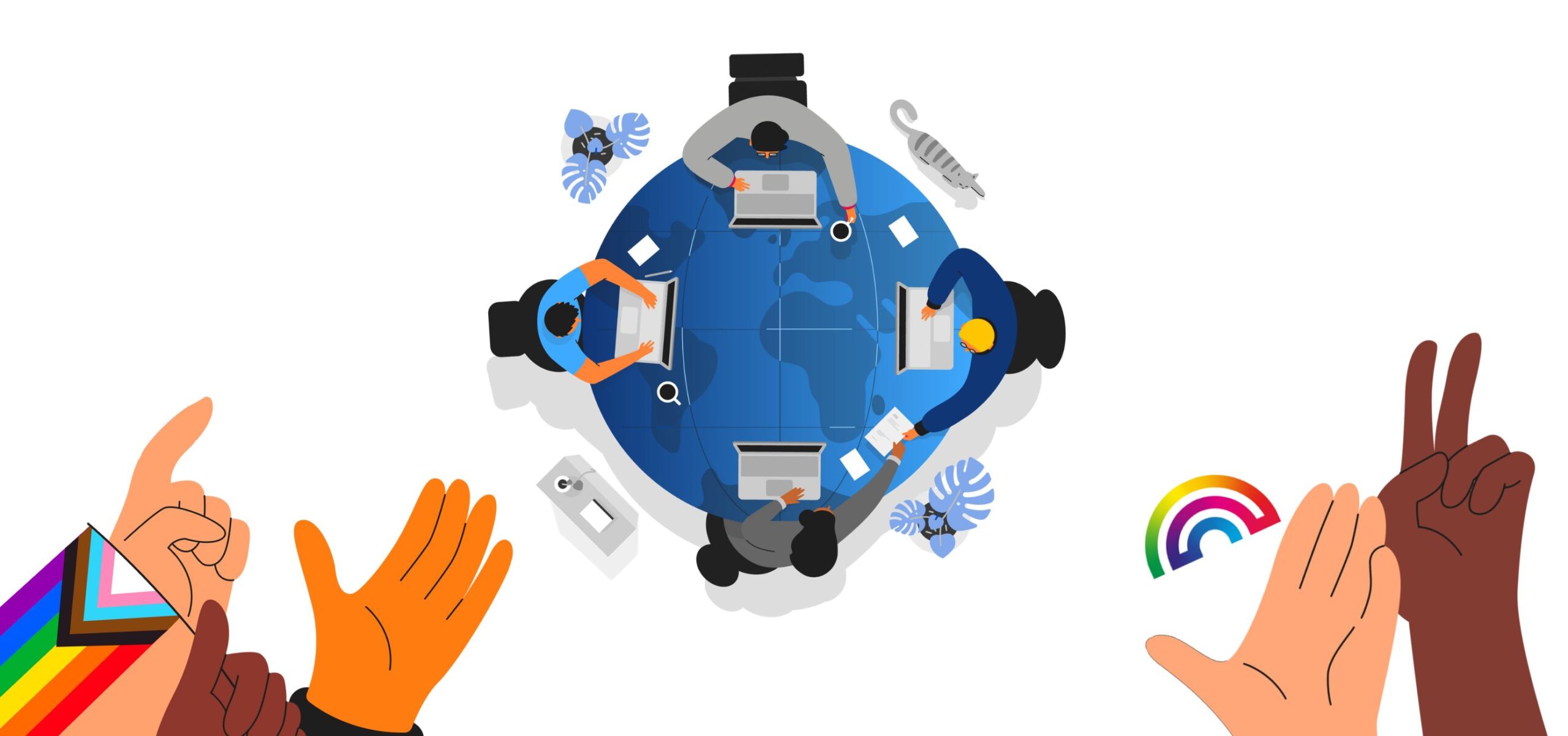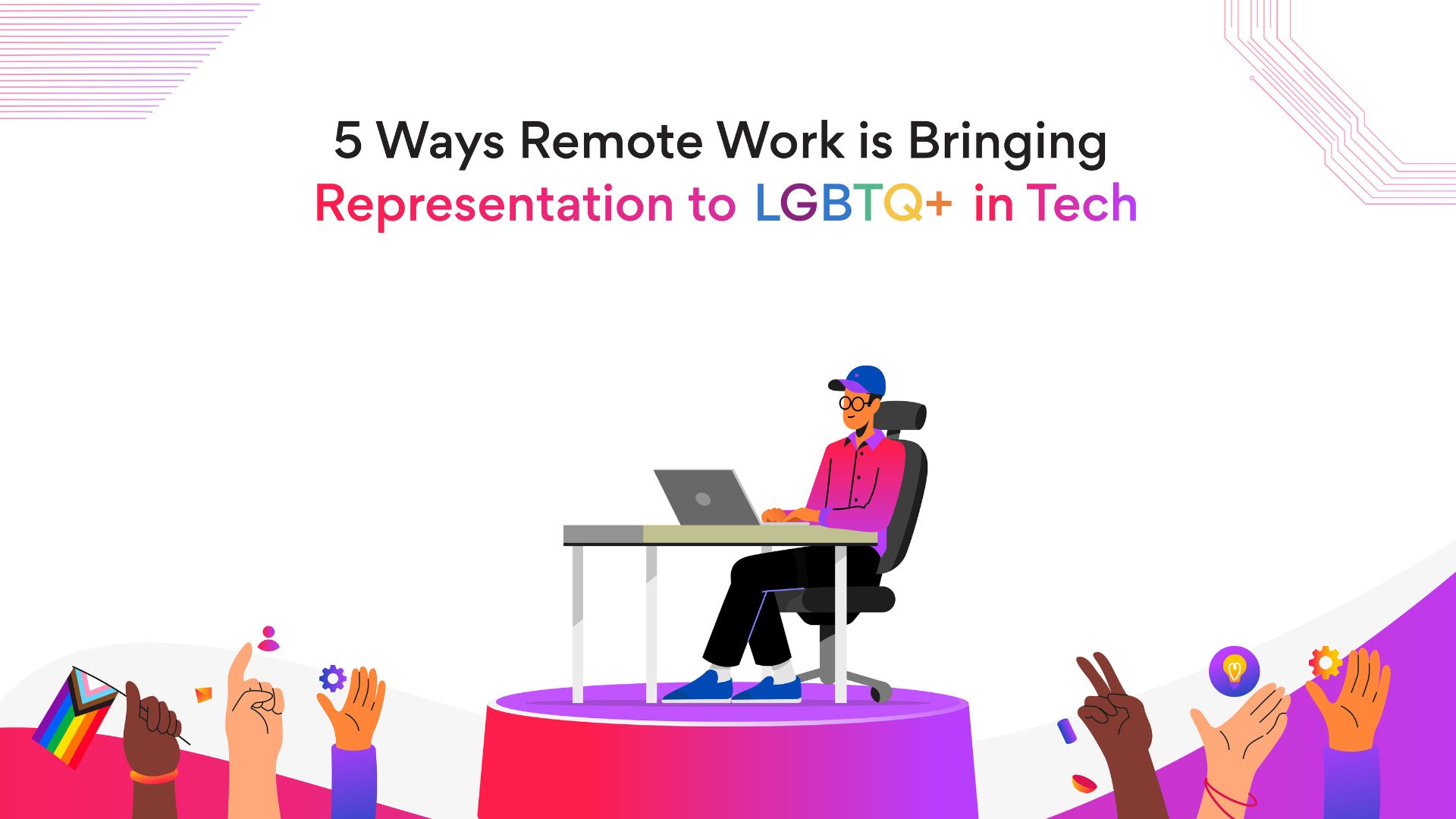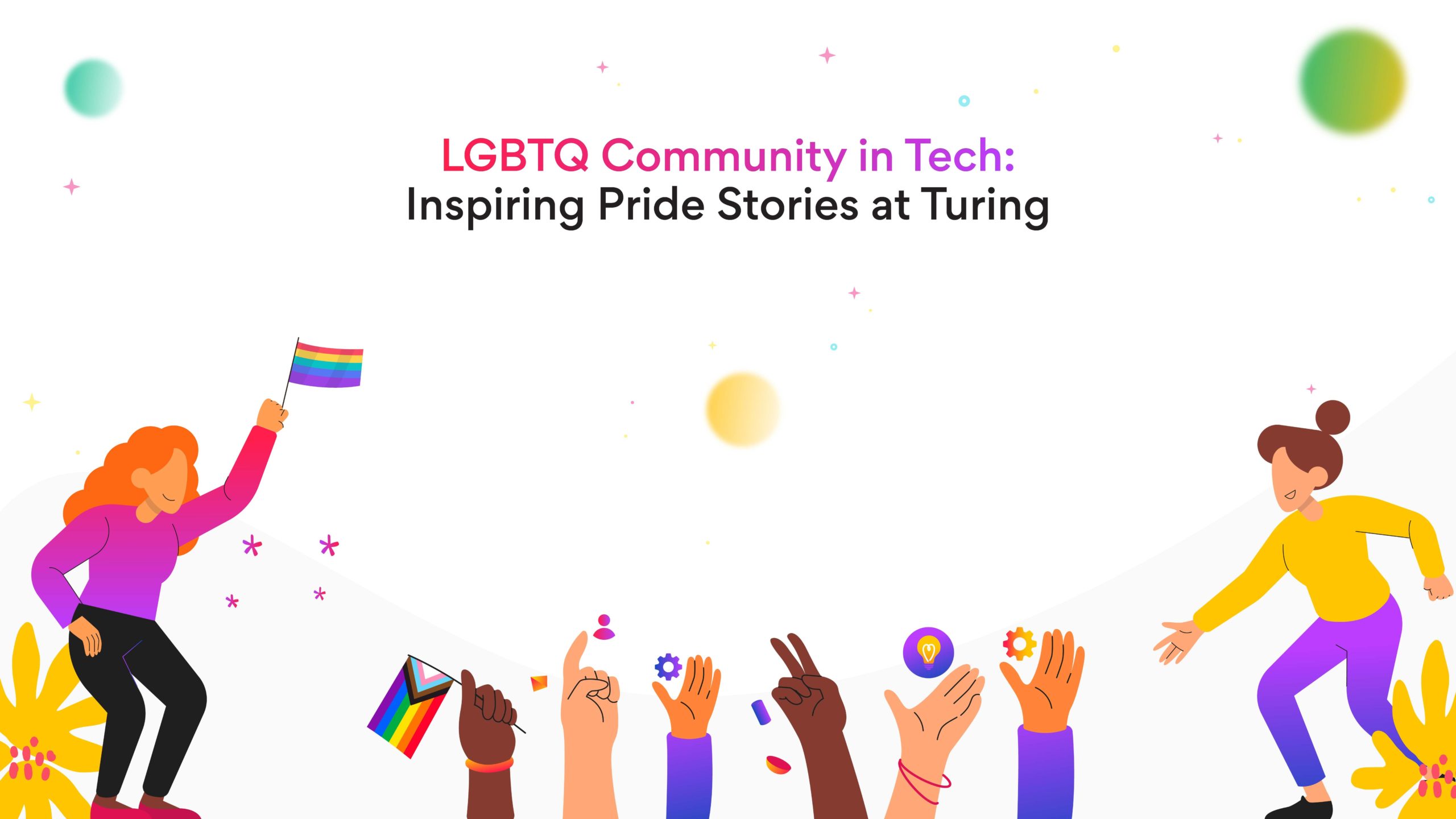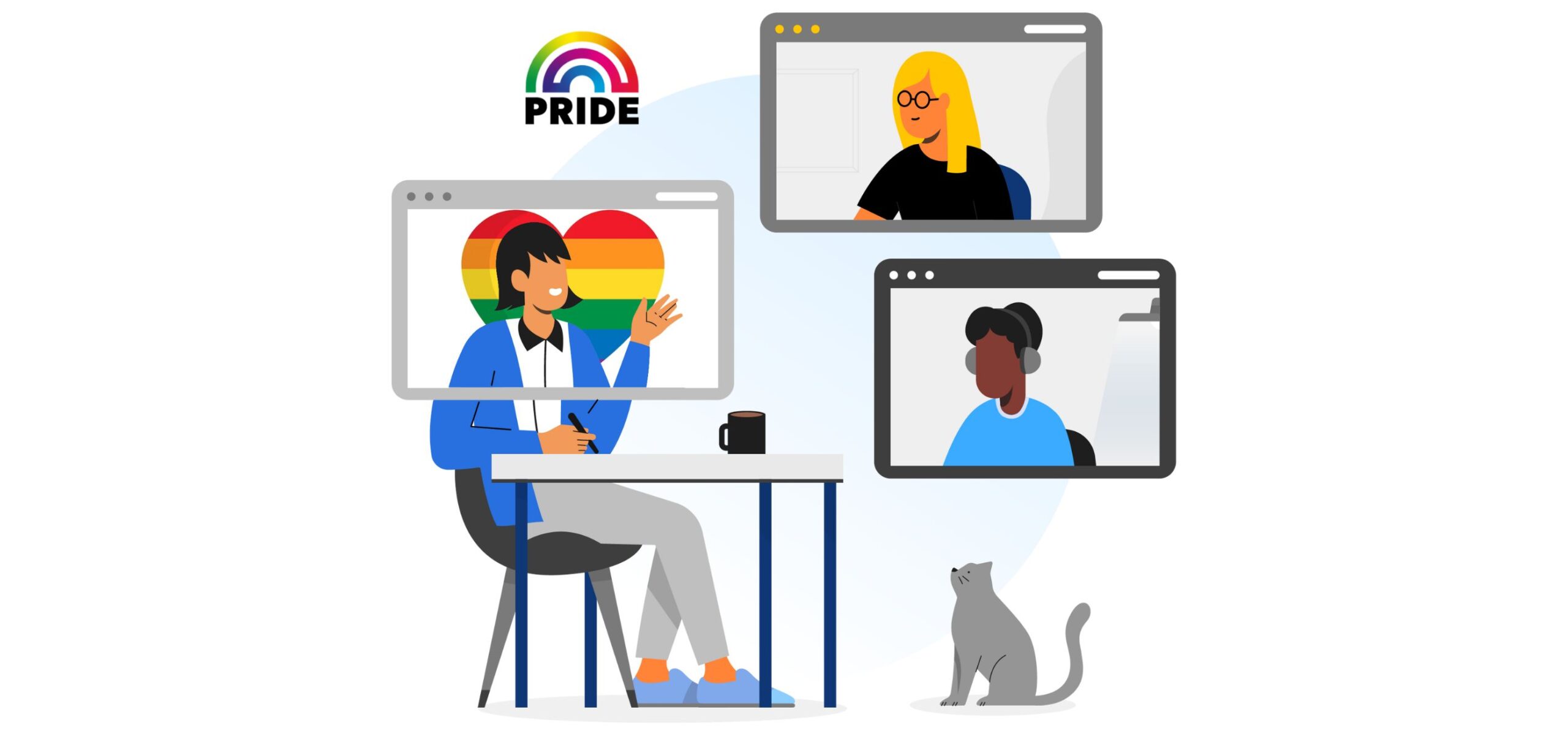LGBTQ+ Role Models in the Tech Space | Pride Month Series
Alan Turing, Tim Cook, Edith Windsor, Christopher Strachey, Angelica Ross, Lynn Conway, and Jon “Maddog” Hall all have two things in common. First, they’re engineering leaders who’ve been a monumental part of the LGBTQ+ community. Secondly, they’ve inspired multitudes with their technological innovation and invention.
Here’s a breakdown of their many achievements:
Alan Turing (1912-1954)
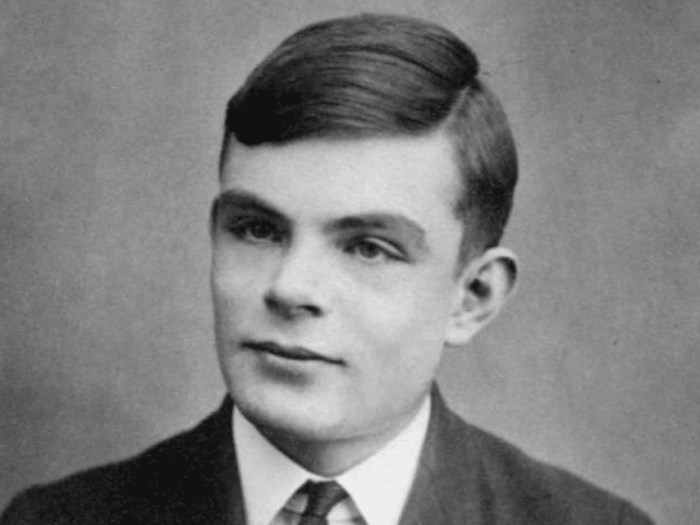
We named Turing.com after Alan Turing in honor of his vast scientific legacy. Alan Turing helped design that machine that decoded secret German correspondence during World War II. He also developed one of the world’s first computers, the Pilot ACE (Automatic Computing Engine.) However, Turing’s work was soon cut short. When the British government learned of his sexual orientation, they arrested and prosecuted him for “gross indecency.” Turing died by suicide in 1954, aged 41. Today, he is considered one of the world’s most influential scientists—a 2019 BBC series voted him the most remarkable person of the 21st century. He was issued a posthumous Royal Pardon for his conviction in 2013. On June 23rd, Turing’s birthday, the new £50 banknote will feature Alan.
Tim Cook (1960-)

Tim Cook is arguably one of the most prominent members of the LGBTQ+ tech community. In 2014, Cook became the first CEO of a Fortune 500 organization to come out as gay. The famously private Cook decided to do so after receiving letters from children struggling with their sexual orientation. He came out in a Bloomberg essay, saying, “If hearing that the CEO of Apple is gay can help someone struggling to come to terms with who he or she is…then it’s worth the trade-off with my privacy.”
Edith Windsor (1929-2017)
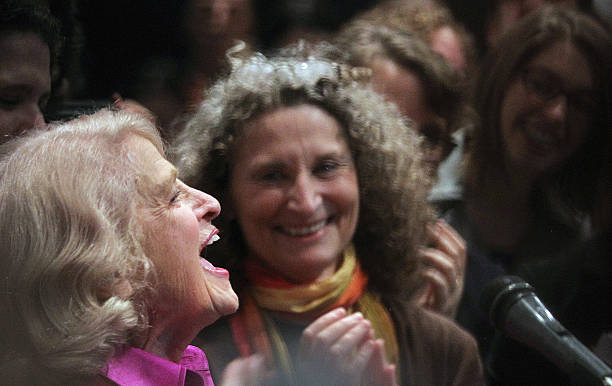
Edith Windsor is well-known as the lead plaintiff in the landmark Supreme Court judgment that helped overturn DOMA (Defense of Marriage Act) and gave federal recognition to same-sex couples for the first time. Windsor filed the lawsuit after she was unable to claim a tax exemption on the estate her late spouse left her, as the term “spouse” referred only to heterosexual couples at the time.
Lesser known are Windsor’s contributions as a computer scientist. Windsor worked at IBM for 16 years and achieved the highest technical position at the time, Senior Systems Programmer. Praised especially for her “top-notch debugging skills,” Windsor founded the consulting firm PC Classics after leaving IBM and helped several LGBTQ+ groups become tech-savvy.
Christopher Strachey (1916-1975)
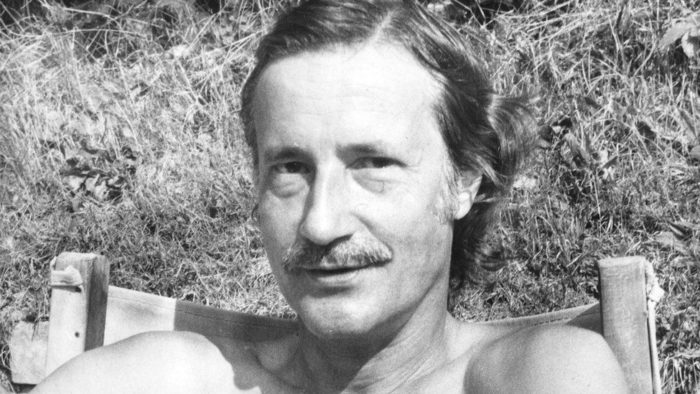
Christopher Strachey’s path crossed Alan Turing’s several times. Strachey’s father worked as a cryptographer at Bletchley Park alongside Turing during World War II. Strachey learned mathematics and physics at King’s College, Turing’s alma mater. In his third year, Strachey suffered a nervous breakdown, allegedly caused by a struggle with accepting his sexuality. Strachey would program a draughts game on a reduced version of Turing’s Pilot ACE built by the National Physical Laboratory. He later developed the first computer music program: a rendition of God Save the Queen.
Angelica Ross (1980-)

Angelica Ross is a transgender businesswoman, activist, and self-taught programmer. In 2014, Ross founded TransTech Social Enterprises, an incubator to help transgender and non-conforming people find employment in the tech industry. Ross simultaneously balances an acting career, having starred in Pose, American Horror Story, and Her Story. In 2015, Ross was a featured speaker at the White House Tech and Innovation Summit. In 2019, she became the first transgender person to host a presidential forum.
Lynn Conway (1938-)
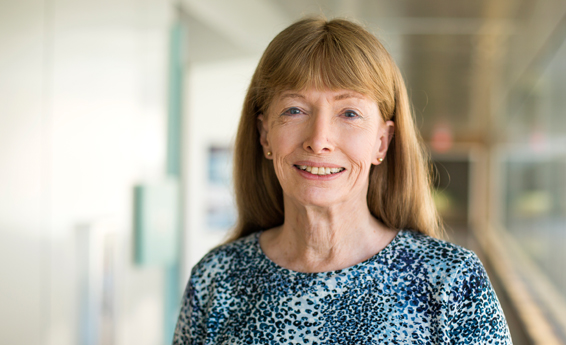
Lynn Conway is one of the pioneering developers of computer chip design and supercomputer technologies. In 1964, IBM recruited Conway to their research team, where she made significant innovations in chip design and had a promising career. However, when Conway declared herself a transgender woman and began transitioning, IBM fired her. Post-transition, Conway assumed a new identity and restarted her career in “stealth mode.” She achieved success with her work for Memorex, Xerox PARC, and DARPA. In 2020, IBM apologized for firing her.
Jon “maddog” Hall (1950-)

Jon “Maddog” Hall has been a prominent supporter of the Unix/Linux systems and a leading proponent of open-source software. Hall worked with Linus Torvalds, the principal developer of the Linux OS, to make the Linux kernel 64-bit and portable across hardware architectures. He has served on the boards of many organizations, including the Linux Professional Institute and USENIX Association. Hall was head of the computer science department at Hartford State Technical College, where his temper earned him the nickname “Maddog.” In an article for Linux Magazine, Hall came out as gay in honor of Alan Turing’s 100th birth anniversary. He called Turing his hero, saying, “[Turing] did so much for the industry with which I have spent the last 42 years of my life.”
Turing.com celebrates these pioneers of the LGTBQ+ community who have overcome persecution and made invaluable contributions to science and technology.
At Turing, talented software developers can find long-term, full-time US remote software jobs, across Full Stack, Front-End, Back-End, DevOps, Mobile, and AI/ML roles. Companies can hire top developers across 100+ skills, including but not limited to, React, Node, Python, AWS, and JavaScript.
Join a network of the world's best developers and get long-term remote software jobs with better compensation and career growth.



